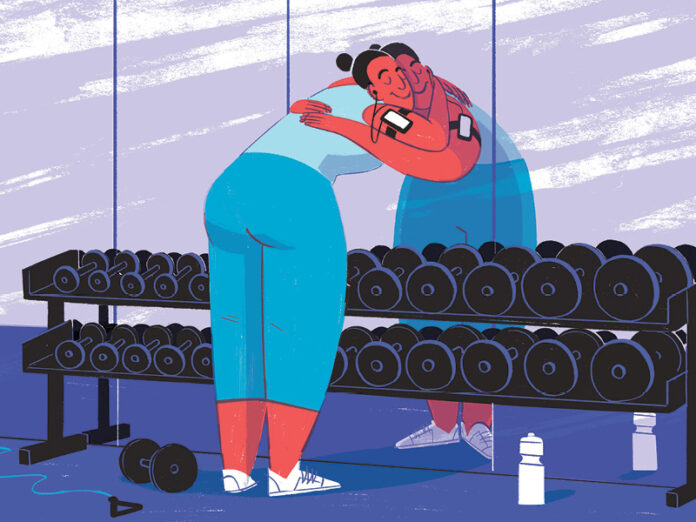
The abilities to stick to a gruelling exercise regimen and spartan diet are much-admired traits in our culture. It can therefore be tricky to recognize when a person’s exercise and eating behaviours are extreme and indicative of an eating disorder. This is worrisome, as eating disorders are life-threatening illnesses.
If you experience emotional distress related to exercise, eating, or your body weight or shape, or your exercise or eating behaviours are interfering with other aspects of your life, seek help. Struggling with problematic exercise or eating is nothing to be ashamed about and it’s very difficult to overcome these struggles alone.
If you’re concerned that a family member’s or friend’s exercise or eating patterns are more harmful than healthful, there’s much you can do to help, even if it doesn’t seem so. Taking steps to get informed about eating disorders, expressing your concerns in a non-judgmental way, and being willing to listen to what your loved one has to say are all meaningful forms of support.
The National Eating Disorder Information Centre (NEDIC) operates a Canada-wide helpline that’s open to anyone looking for information or support related to eating disorders, including referrals to eating disorder programs and services.
Warning Signs & Symptoms of an Eating Disorder
- Drastic weight loss or noticeable weight fluctuations;
- Preoccupation with food, nutrition, and one’s body weight and shape;
- Rigid and ritualistic eating behaviours;
- Progressive elimination of foods from one’s diet;
- Avoiding social events that involve food;
- Feeling ashamed about the amount of food one eats;
- Feeling compelled to “make up” for food eaten by vomiting, fasting, or exercising;
- Exercising through fatigue, illness, or injury instead of taking time to rest and recover;
- Prioritizing exercise over other important aspects of one’s life.
Types of Disorders Include
- Anorexia nervosa: characterized by persistent behaviours (commonly restrictive eating and over-exercising) driven by an intense fear of gaining weight or being fat that interfere with maintaining one’s biologically appropriate body weight.
- Bulimia nervosa: characterized by recurring episodes of binge eating followed by compensatory behaviours (such as self-induced vomiting or intense exercise) intended to purge one’s body of the food consumed and prevent weight gain.
- Binge eating disorder: characterized by regular episodes of eating a very large quantity of food in a relatively short period of time in a way that feels out of control.
- Orthorexia nervosa: not a formally recognized diagnosis, but a term that is now widely being applied to problematic eating driven by an obsession with consuming only “healthy” or “pure” foods.
Need Support? Contact NEDIC
Phone: 1.866.633.4220
E-mail: [email protected]
Instant chat: www.nedic.ca















